It may seem like dogs are challenging their owner’s digestive systems by consuming the most revolting things they can come across. This can include used tissues, cigarette butts, or even poop, particularly rabbit poop as discussed in this article. So, what motivates them to do so?
We will explore the reasons behind this behavior and what happens afterward. Rest assured, it is a common behavior that usually results in nothing more than an upset stomach and some discomfort.
The 5 Reasons the Dogs May Eat Rabbit Poop
1. Nutritional Deficiencies
Rabbit droppings are typically rich in B-complex vitamins and fiber, so if your dog lacks certain nutrients, they might consume it in an effort to fulfill their nutritional needs.
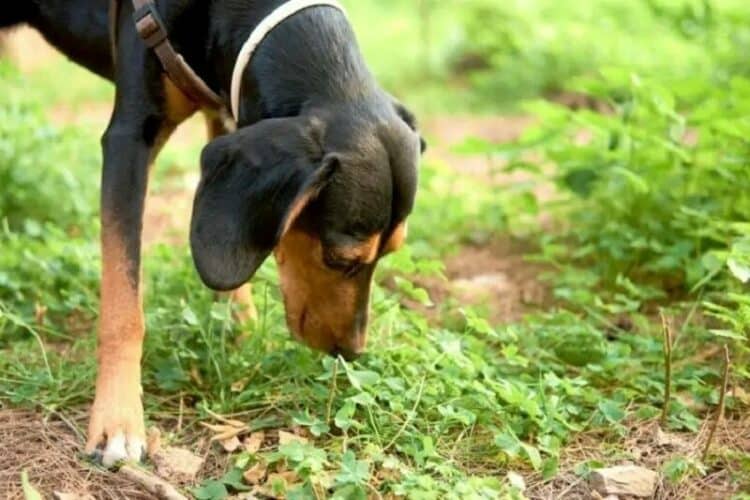
2. Attention Seeking
If your dog has previously consumed rabbit poop and received a strong reaction from you, they might repeat the behavior to garner attention. Any response, positive or negative, is better than being ignored, and your dog might be displaying attention-seeking tendencies if they feel neglected.
3. Curiosity
Dogs explore the world through their sense of smell and taste, so if they encounter something new, they may eat it to investigate further. Rabbit poop likely emits an intriguing scent to your dog and is conveniently bite-sized!
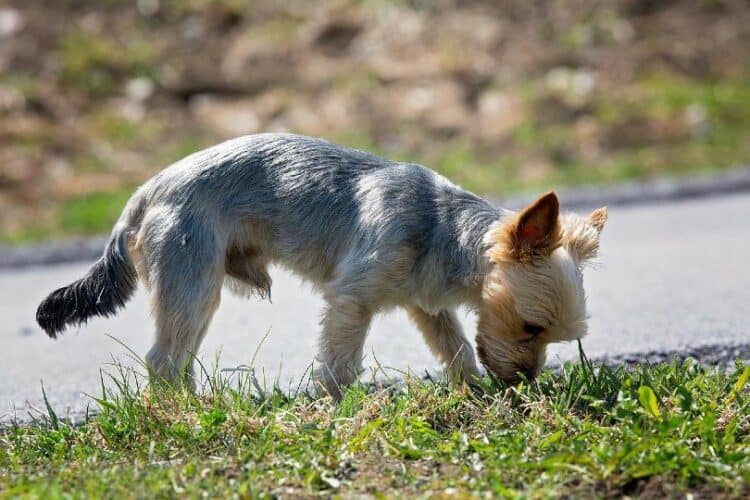
4. Hunger
If your dog is sufficiently hungry, they may consume anything that vaguely resembles food. Some dogs simply enjoy the taste.
5. Pica
Pica is a condition where a dog persistently eats non-food items such as garbage, plastic, paper, feces, or dirt. Some dogs may consume anything they come across, while others fixate on a specific item. It is often viewed as an obsessive-compulsive behavior but can also stem from inadequate nutrition or a medical issue.
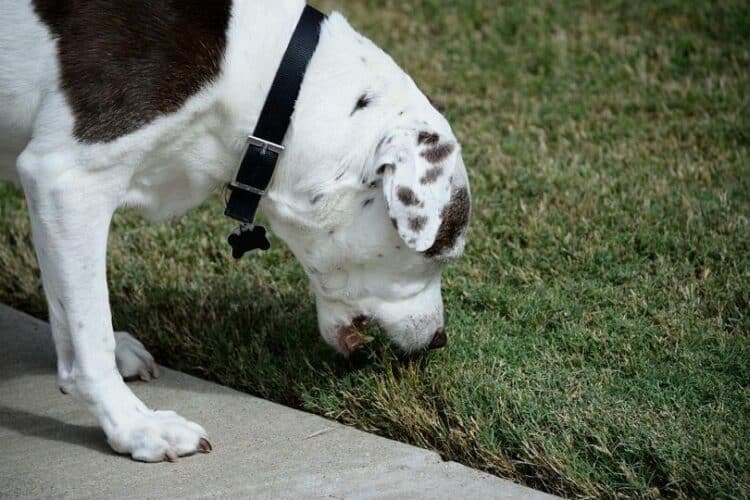
People Also Ask (FAQ)
What Should You Do if Your Dog Just Ate Rabbit Poop?
If your dog has recently consumed rabbit poop, you may be wondering about your next steps.
- Secure your dog: If your dog was off-leash, secure them and move them away from the rabbit poop to prevent further consumption. If safe, remove any droppings from their mouth.
- Take notes: Provide your vet with all relevant information. Note the amount consumed, the timing, and whether the droppings were from a wild rabbit or a pet.
- Call the veterinarian: Your vet may recommend monitoring your dog at home, but if they have a sensitive stomach or underlying health issue, they may advise a visit for a thorough check-up.
- Watch for concerning symptoms: Follow your vet’s guidance on monitoring your dog. If you have concerns, contact your vet for further advice.
Can Eating Rabbit Poop Be Harmful?
Rabbit droppings consist of vegetables, grass, plants, bacteria, rabbit fur, and intestinal mucus, which pose minimal risk to dogs. While ingesting a small amount should not pose major issues, rabbit feces can harbor harmful bacteria that may cause stomach upset, particularly if from a wild rabbit. Parasites like worms can also be present. Exercise caution if your dog has existing health issues or a sensitive stomach. Additionally, remember that parasites and bacteria from rabbits can be transmitted to dogs and even humans, so maintain good hygiene practices!
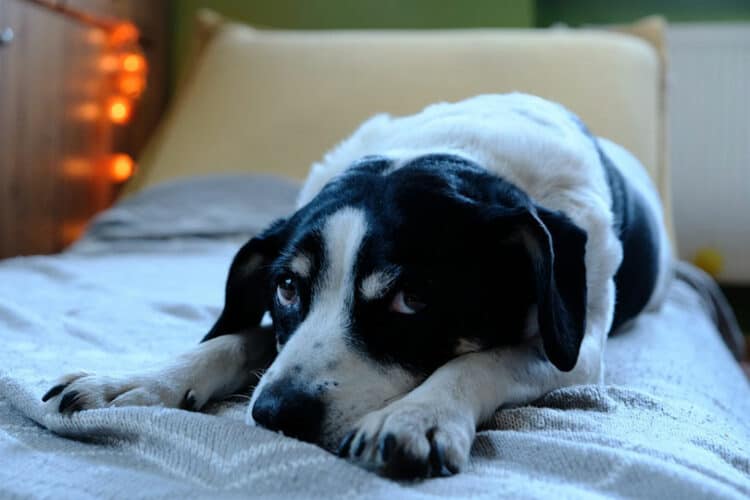
How Long Will Your Dog Feel Unwell For?
While some dogs may recover without issues, others might exhibit symptoms like loss of appetite, lethargy, diarrhea, and vomiting in the days following ingestion. This is more common in dogs with sensitive stomachs or conditions such as pancreatitis. If you notice any concerning signs, seek advice from your vet.
Most dogs will recover within a few days, but parasites from rabbit feces can occasionally lead to prolonged issues like chronic diarrhea. If you are worried, consult your vet for treatment options to alleviate nausea, stomach discomfort, and dehydration in your dog.
How to Prevent Your Dog From Eating Rabbit Poop
Training can be beneficial, and teaching a “leave” command can deter your dog from consuming inappropriate items. If wild rabbit droppings are the concern, plan routes that avoid areas with high rabbit populations. Consider using a muzzle as a temporary solution if alternative routes are not feasible.
If you reside in an area with wild rabbits, inspect your yard before allowing your dog outside and supervise their outdoor activities. If you have a pet rabbit, it is advisable to keep your dog and rabbit separate to prevent access to rabbit poop.
If you suspect your dog is experiencing PICA, consult your vet to rule out medical issues and seek guidance from an animal behaviorist to address this behavior.
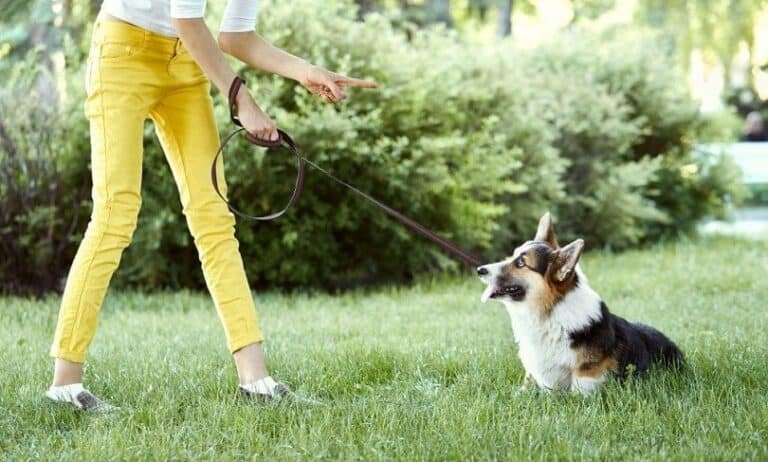
Final Thoughts
Consuming rabbit poop may be unappealing, but it is a natural behavior for dogs. There are various reasons behind this behavior, and unless your dog has a sensitive stomach or underlying health conditions, it is generally harmless. While most dogs will recover within a few days, those with severe stomach issues may require veterinary care. Remember that parasites transmitted from rabbits to dogs can also affect humans, so prioritize hygiene practices.
Featured Image Credit: Unsplash

